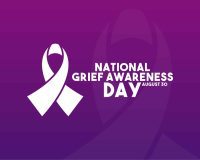
Larry Patten is a retired paster and currently works in a hospice facility in Fresno, California. As any hospice worker, he visits people in their homes, hospitals and skilled nursing facilities and tends to patients who have anywhere from a few months to a few weeks to live.
In his experience, he has seen what he calls a silent conspiracy: being asked to not wear his hospice name tag when visiting a patient. It’s a call that the family makes, thinking they are protecting the patient—or simply not wanting to face the truth themselves—but either way, they don’t want the patient to know that they are nearing death. Doctors have also been known to be pulled into the loop.
And so name tags are put away and questions are ambiguously answered, making every effort not be the one to make the mistake and speak the truth.
There can be a myriad of other reasons to not bring up dying in the patients’ presence including:
- The family hasn’t yet talked about the life-limiting illness of their loved one.
- The destructiveness of a disease can move faster than the time it takes for a family to gather.
- Death is a taboo subject because of the family’s faith, culture or traditions.
- The new hospice patient once ordered the family to never say when there would be only weeks or months left to live.
- Thinking about death causes verbal paralysis for every family member.
- No one wants to “upset” the dying loved one.
- Someone will tell the patient tomorrow. (But tomorrow is always tomorrow.)
- There will be a miracle.
The pretense changes the roles of the hospice team turning hospice registered nurses and licensed vocational nurses into nurses from a home health agency; a social worker is now someone who has been sent by a physician to help the patient complete a few required forms; chaplains become part of a care team paid by Medicare (or some other insurance) and are there on a friendly visit.
But then as it often does, the truth comes out, never from the hospice staff but sometimes because of a family member telling the patient or more often, because the patient already knows and asks, “Am I dying?”
No matter how well someone may try to hide the truth, most likely it is already out there, so talk about it and wear those name tags.




